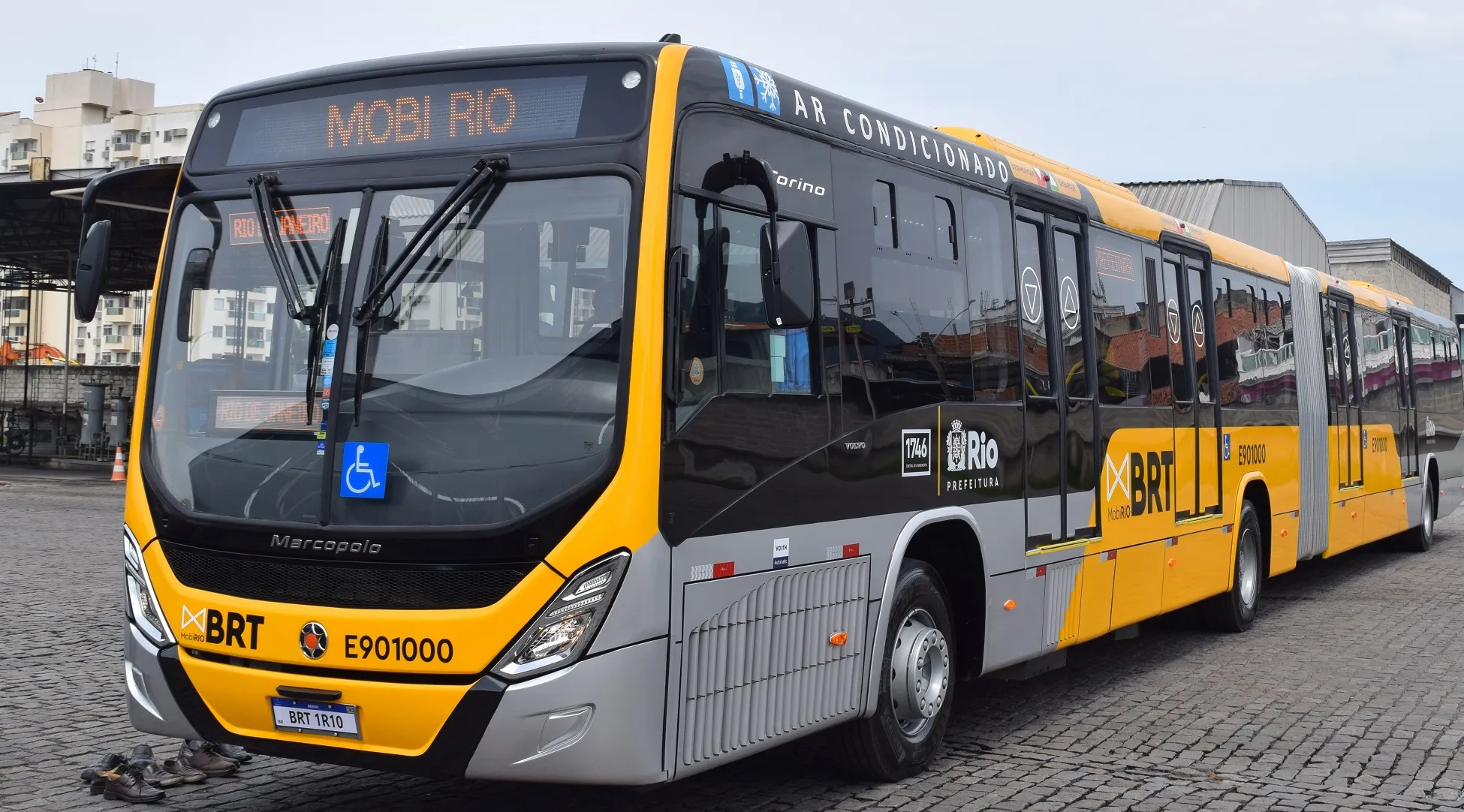Scania recently unveiled a 28-metre bi-articulated bus with a passenger capacity of up to 270 people aimed specifically at the Latin American bus rapid transit market.
The bus is powered by Scania’s 360 hp front engine, with bodywork by Brazilian bus bodybuilders Caio or Neobus. The bus is equipped with five doors for an efficient and smooth passenger flow and, despite its higher price tag, Scania calculates that the passenger-per-kilometre cost is 40 percent lower compared with a conventional articulat
October 16, 2015
Read time: 1 min
The bus is powered by Scania’s 360 hp front engine, with bodywork by Brazilian bus bodybuilders Caio or Neobus. The bus is equipped with five doors for an efficient and smooth passenger flow and, despite its higher price tag, Scania calculates that the passenger-per-kilometre cost is 40 percent lower compared with a conventional articulated bus.
“This is very much in line with Scania’s aim to provide sustainable transport,” says Silvio Munhoz, head of Bus and Coach Sales for Scania in Brazil. “As cities continue to grow, ensuring mobility is an increasing concern and efficient








